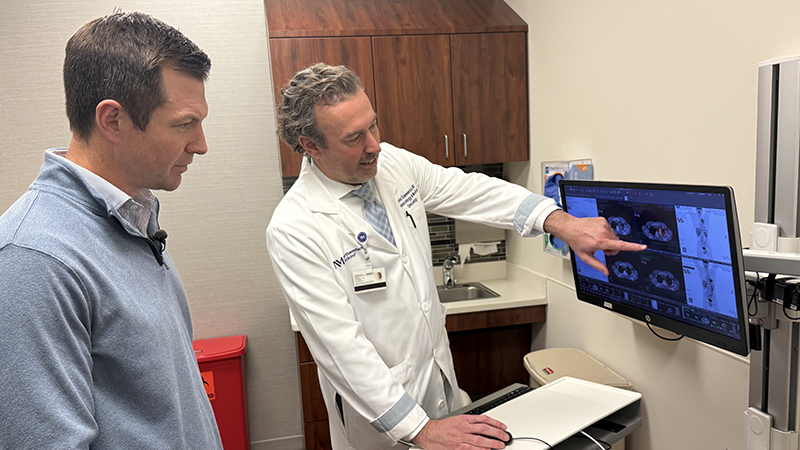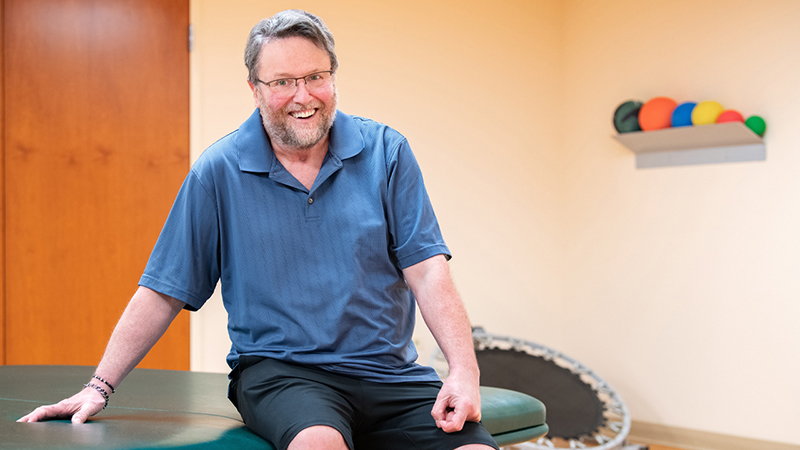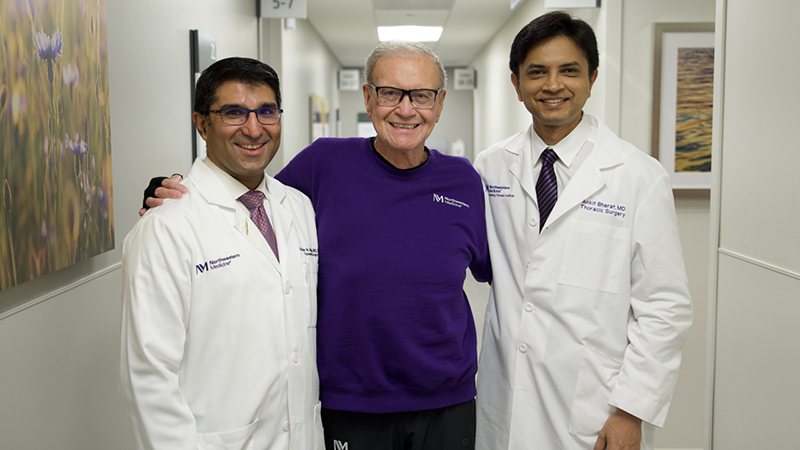Pregnant ― and Battling Cancer
Published February 2020
Balancing Chemotherapy and Prenatal Care
“Where should I start from, when I found out I was pregnant, or when I found out I had cancer?”
Robin’s story is complicated. But a dedicated team delivered complex and collaborative medical care to make sure it had a happy ending.
The Beginning: An Accident
When Robin was 28 and eight weeks pregnant with her second daughter, her car was struck by a drunk driver. “It was the beginning of the craziest year of my life,” she says. She went to the emergency department to make sure her baby was OK, but afterwards, she had a nagging soreness in her knee.
Robin chalked it up to the accident and her job in the food service industry, which kept her on her feet all day. Two months later, she slipped on ice. This fall shattered her world.
Robin went to a local emergency department where she once again confirmed that her baby was OK. But the back of her knee continued to throb, so her physician ordered an X-ray to make sure nothing was broken.
“When the doctor walked into the room, I knew something was wrong,” says Robin. “He said it looked like there was a tumor in my bone, and he referred me to Northwestern Medicine and Dr. Peabody.”
Terrance D. Peabody, MD, a Northwestern Medicine orthopaedic oncologist, performed a biopsy. It confirmed that Robin had bone cancer. “My entire family started crying,” says Robin. “I blinked and said, ‘What do we do next?’ I wanted to kick cancer’s butt and have a healthy baby.”
“Team Robin and Baby”
The High-Risk Perinatal team at Northwestern Memorial Hospital came together with the Medical and Orthopaedic Oncology, Nutrition, Hospitalist and Orthopaedics teams to come up with the best treatment plan for the best possible outcome for both mom and baby.
Balancing pregnancy with cancer treatment was no easy feat — and the clock was ticking. The ideal window for starting aggressive treatment before the cancer potentially spread, and before her baby’s arrival, was closing fast.
Robin started chemotherapy, but much of her treatment had to be individually tailored given her unique situation; the typical scans used to monitor the progression or stage of cancer posed a risk to her baby, so Robin’s team had to come up with an innovative approach to her care.
Chemo was challenging both emotionally and physically. Robin had just gotten over morning sickness, but chemotherapy once again brought on constant nausea. She shaved her head and mourned the loss of her thick brown hair. She lost her independence: Because she could not bear weight on the affected leg, she spent most of her time in a wheelchair or on crutches. The pain was constant, but she couldn’t take pain medication because it would affect the baby. It was also a difficult time for 10-year-old daughter Alexis, who was by Robin’s side for everything.
C-Section and Tumor Resection
With her due date approaching, Robin’s physicians came up with a new plan involving back-to-back surgeries: a cesarean section to deliver the baby, followed by a nine-and-a-half-hour orthopaedic surgery to remove the bone tumor.
“Robin’s courage stood out to me,” says Dr. Peabody. “She was determined to have her daughter and to fight the cancer. I can’t imagine going to sleep in the operating room under her circumstances.”
Most women wake up from a C-section to meet their babies. Robin woke up with empty arms. But, Sophia’s birth was special.
Robin’s courage stood out to me.— Terrance D. Peabody, MD
“Everyone says it was the sweetest moment — many members of the care team cried,” says Robin. “I was frustrated that I missed it, but at the end of the day, I did what had to be done for my beautiful girl.”
Since the C-section was scheduled before Robin’s due date, Sophia spent some time in the Neonatal Intensive Care Unit to ensure that her lungs were functioning properly. Two days after surgery, Robin and Alexis met Sophia for the first time. Determined to get back home to her family, Robin worked hard with her physical therapist and was discharged from the hospital after one week.
Robin continued treatment for about three more months. Then Medical Oncologist Mark Agulnik, MD, with Robert H. Lurie Comprehensive Cancer Center of Northwestern University at Northwestern Memorial Hospital, delivered the good news: Her cancer was gone.
“Given the difficult and stressful situation that Robin had been under, being able to deliver the news of ‘cured’ was the greatest for all involved,” says Dr. Agulnik.
“It was the best thing anyone’s ever said to me,” adds Robin.
More Good News
Four years later, Robin received more good news. Even though chemotherapy can affect fertility in women, and Robin lost one of her ovaries, she found out that she was pregnant for the third time with another little girl.






